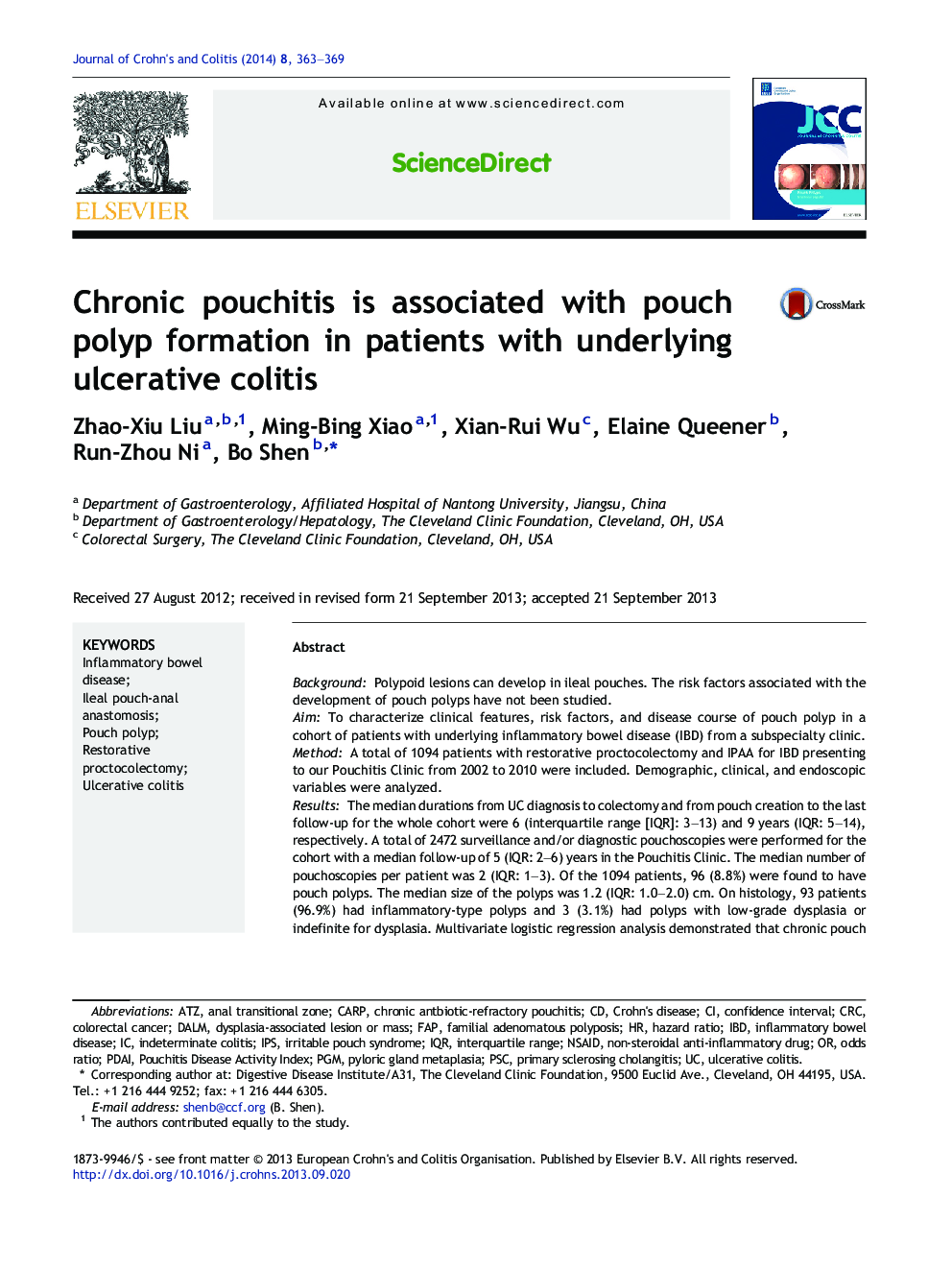| کد مقاله | کد نشریه | سال انتشار | مقاله انگلیسی | نسخه تمام متن |
|---|---|---|---|---|
| 3312470 | 1211036 | 2014 | 7 صفحه PDF | دانلود رایگان |

BackgroundPolypoid lesions can develop in ileal pouches. The risk factors associated with the development of pouch polyps have not been studied.AimTo characterize clinical features, risk factors, and disease course of pouch polyp in a cohort of patients with underlying inflammatory bowel disease (IBD) from a subspecialty clinic.MethodA total of 1094 patients with restorative proctocolectomy and IPAA for IBD presenting to our Pouchitis Clinic from 2002 to 2010 were included. Demographic, clinical, and endoscopic variables were analyzed.ResultsThe median durations from UC diagnosis to colectomy and from pouch creation to the last follow-up for the whole cohort were 6 (interquartile range [IQR]: 3–13) and 9 years (IQR: 5–14), respectively. A total of 2472 surveillance and/or diagnostic pouchoscopies were performed for the cohort with a median follow-up of 5 (IQR: 2–6) years in the Pouchitis Clinic. The median number of pouchoscopies per patient was 2 (IQR: 1–3). Of the 1094 patients, 96 (8.8%) were found to have pouch polyps. The median size of the polyps was 1.2 (IQR: 1.0–2.0) cm. On histology, 93 patients (96.9%) had inflammatory-type polyps and 3 (3.1%) had polyps with low-grade dysplasia or indefinite for dysplasia. Multivariate logistic regression analysis demonstrated that chronic pouch inflammatory change was a risk factor for the development of pouch polyp with an odds ratio of 2.26 (95% confidence interval: 1.35–3.79; P = 0.002).ConclusionThe majority of pouch polyps in patients with underlying UC were benign. Patients with concomitant chronic pouch inflammatory changes had an increased risk for developing pouch polyps.
Journal: Journal of Crohn's and Colitis - Volume 8, Issue 5, 1 May 2014, Pages 363–369